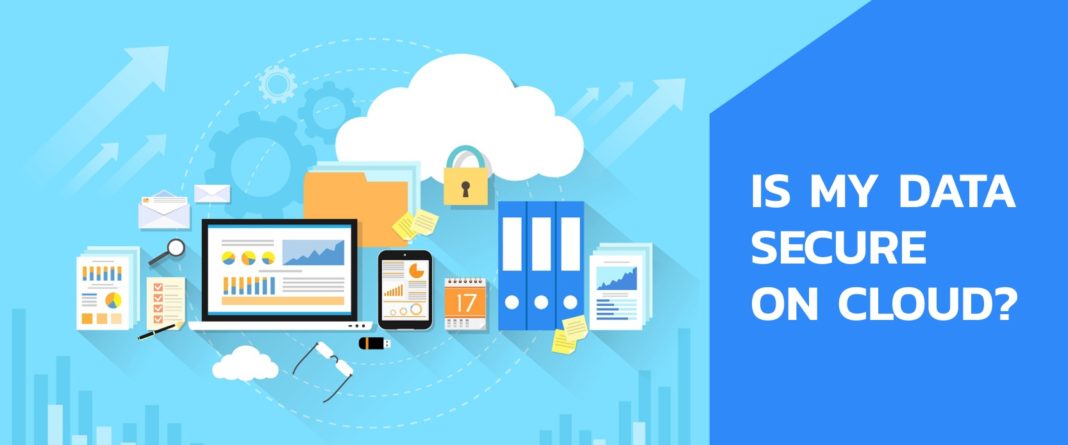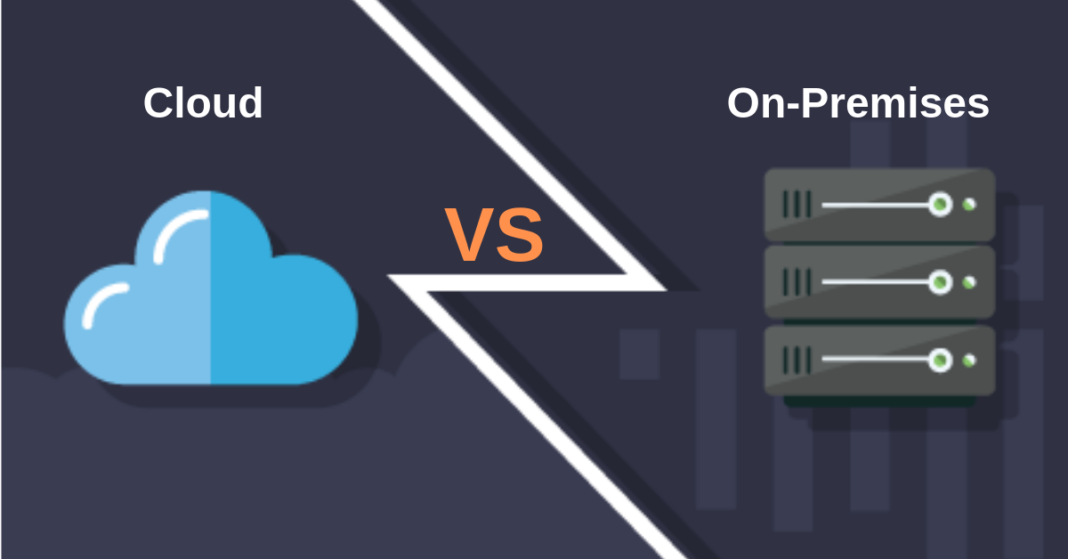Every day we feel dubious to shift to cloud computing. The pressure from higher officials to use cloud computing is the main push over for the shift. However, they feel that cloud computing still has too many shortcomings. All these lead to the main question on hand, IS MY DATA SECURE ON CLOUD?
The shortcomings that a few are aware of are not caused by the cloud being hacked but just the misuse of data from a third party. The personal information that the third party has is used by the hackers to get into your data. Otherwise, the cloud is much more secure than the traditional data center.
When the security aspect is spoken of with companies, I want them thinking about the security of the cloud as well as security in the cloud.
Security of the cloud means the traditional security elements that go hand in hand with moving to the cloud. They come with the cloud infrastructure a company might select; security at the compute, storage and network service layers. These are maintained as foundation security elements of the cloud infrastructure itself and provide the customer a baseline of comfort.
Security in the cloud refers to the applications, the data and other services a company runs in their cloud or clouds. These services are generally connected to each other, back into the organization and most importantly, connected out to multiple end-points. And those end-points are exactly the targets, today’s evolved cyber threats are looking to exploit. It’s the responsibility of the customer, not the cloud provider to ensure that services which are running in the cloud are as secure as the cloud infrastructure itself.
The General conception of the common people is that On-premise infrastructure is more secure because it’s on-site. If a company maintains a traditional in-house data center with physical servers, chassis racks, and cooling fans its IT team has complete control over the data.My counter question to them is, why then hackers were able to make data breaches/hacking possible? Remember, most of the breaches are inside jobs, and a cloud system actually offers greater protection.Security breaches caused by unauthorized physical access to a cloud host’s data centers are incredibly rare. The most costly breaches come from within a company’s own firewalls, often from employees but Cloud hosting companies protect customers and alert them immediately about any disturbance.In addition, secure servers hosted in various locations safeguard data better than that of a single location. Cloud providers can rapidly deploy a fully-tested virus protection to all customers. A cloud provider that hosts hundreds of customers offers fast and complete protection from emerging threats that one would never be able to feasibly manage individually.Moreover, Customers feel that On-premise data centers are more reliable as the issues can be resolved physically then and there. The servers in the company premises would ensure better system uptime, which entirely depends on maintenance. Also, the team can perform system checks at leisure.
Contradictive to on-Premise data centers, Cloud systems guarantee better uptime because they experience fewer service disruptions and have 24/7/365 monitoring. An IDC study of companies using cloud services showed that the benefits of the vendor’s scale and size led to significantly fewer disruptions and lower costs. One of the leading cloud provider Amazon Web Services (AWS), IDC said: “End users benefited from fewer service disruptions and quicker recovery, reducing downtime by 72% and saving nearly $32,600 per application per year.
Some features of cloud security that I demonstrate to Customer and explain to them why the fear of the security on Cloud is more of a myth than a reality.
Strong Perimeters and Surveillance: Legacy system security can be unreliable and difficult to implement. They include the terminal, workstation, and browser. In most offices, a locked door is the main defense to protect IT equipment, important files, and personal- and business-related data. In contrast, the top cloud service providers (CSP) data centers have multi-layered security defenses. Precautions include high fences, barbed wire, concrete barriers, guards that patrol the area, and security cameras. These physical barriers not only prevent people from entering the data center but they also monitor activity near the space.
Controlled Access: When the cloud is used for data storage, employees, vendors, and visitors are physically separated from the company’s important data as it is stored off-site. This lack of physical access makes it more difficult for a third party to misuse data. The human risk is completely evaded.
Cyber Security Expertise: CSPs specialize in keeping data safe. Cloud infrastructure is monitored at all times in order to head off potential security threats. Suppose if we were to look at the skill set in a single organization and compare it to another organization that specializes in a specific solution, all things being equal, we would expect the specialized company to provide the best service. Same is with the Cloud, the cloud vendor will have best security and support for security than any one company. With the Cloud, one gets access not only to the best data centers but also to highly skilled IT professionals.
Thorough and Frequent Auditing: CSPs undergo yearly audits to protect against flaws in their security systems. However, on-premise, legacy systems do not have this requirement. Generally if one has an on-premise solution for five years, within those five years, it may get audited once, which leaves room for gaps in security to arise. Legacy systems are more difficult to keep updated because enterprises may have to go around to several hundred thousand platforms to check and update security systems. It’s easier for legacy systems to fall behind.
Conclusion: Cloud vendors are more secure than any organizational data security.
Cloud security providers have advanced security tools and procedures available, which any company can benefit from. The world’s most security-obsessed organization, the U.S. Central Intelligence Agency (CIA), has a $600 million contract for cloud services with AWS. This is conclusive enough that cloud technology satisfies the highest security demands.
The bottom line is that using cloud services protects your data better than any other form since they are better at avoiding data loss, upgrading hardware and software.
We at Redington are tied up with the best CSP such as AWS, Microsoft, IBM, Oracle, Etc., At Redington, we take pride to address different cloud needs/queries from different partners/customers, and we only work in the best interest of our clients and their requirements.
Our service offerings include.
- Infrastructure discovery and solutions
- Professional Consulting
- One time setup and Implementation
- Security implementation
- Migration services
- Hybrid deployment (on-prem and cloud integration)
- 24/7 Managed Services(Monitoring and optimization)
Take our expert guidance to secure your data on cloud.






